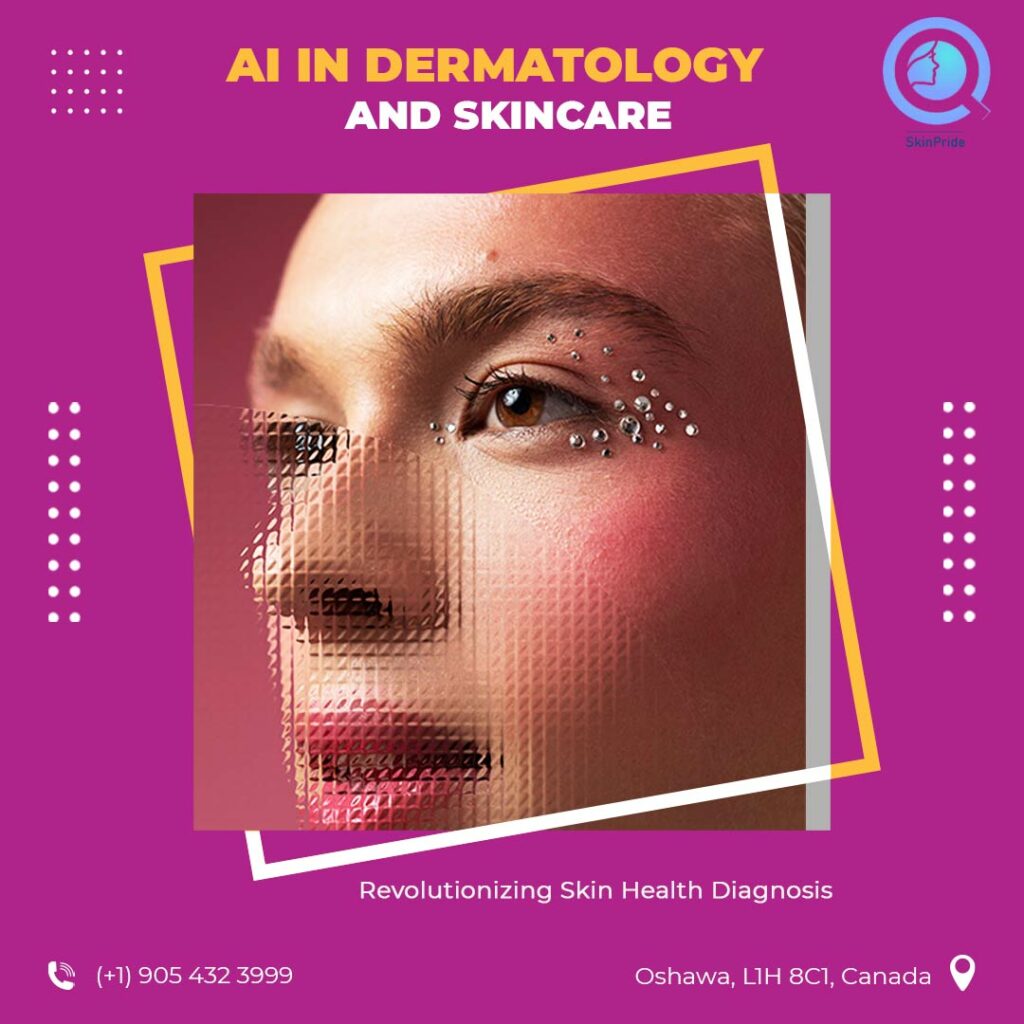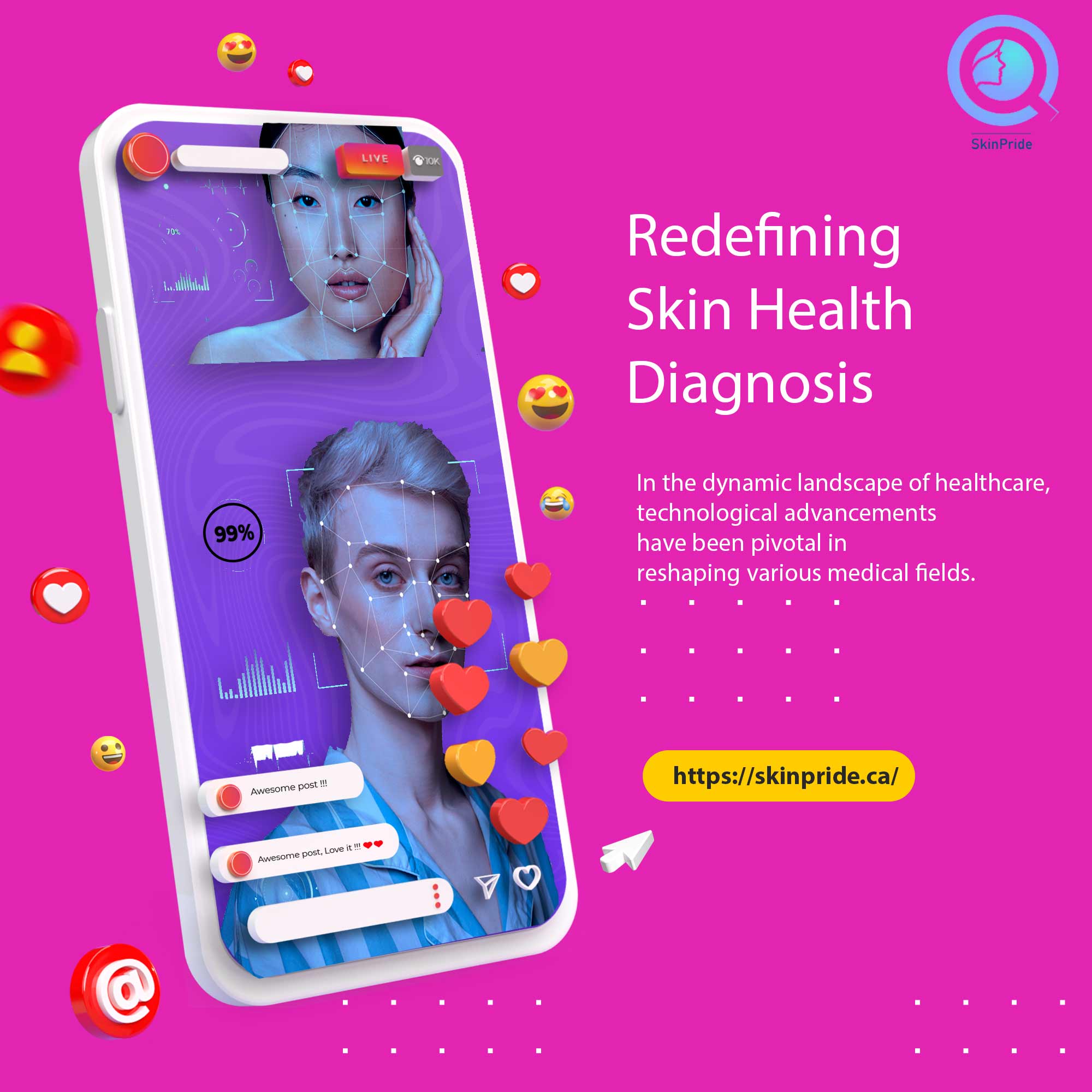Genesis of AI in Dermatology and Skincare
Artificial Intelligence (AI) integration into dermatology and skincare represents a paradigm shift, ushering in an era of technological advancement. In this exploration, we unravel the genesis of AI in these fields, tracing its evolution from conception to the transformative applications that define modern skincare practices. AI is revolutionizing the way dermatologists diagnose and treat diseases, as well as providing new opportunities for personalized skincare. AI-driven technologies are also being developed to detect and diagnose skin cancer earlier, providing more timely and effective treatments and preventing the spread of the disease. AI-driven skincare technologies are also being used to provide personalized recommendations for skincare products, allowing consumers to make informed decisions about what is best for their skin. AI-driven skincare technologies are also being used to develop more effective skincare products, allowing consumers to get better results in less time.
The inception of AI in dermatology
Technological precursors
Early Challenges and Breakthroughs
Analyzing AI's impact
Enhanced diagnostics through AI
Personalized skincare recommendations
Dermatopathology and AI
Redefining Skin Health Diagnosis
In the dynamic landscape of healthcare, technological advancements have been pivotal in reshaping various medical fields. Dermatopathology, the study of skin diseases at a microscopic and molecular level, is no exception to this transformative wave. In recent years, the integration of Artificial Intelligence (AI) in dermatopathology has emerged as a groundbreaking development, promising enhanced diagnostic accuracy and efficiency. This article explores the synergy between dermatopathology and AI, unraveling the profound impact on skin health diagnosis.
In the dynamic landscape of healthcare, technological advancements have been pivotal in reshaping various medical fields. Dermatopathology, the study of skin diseases at a microscopic and molecular level, is no exception to this transformative wave. In recent years, Artificial Intelligence (AI) in dermatopathology has emerged as a groundbreaking development, promising enhanced diagnostic accuracy and efficiency. This article explores the synergy between dermatopathology and AI, unravelling the profound impact on skin health diagnosis. AI-powered tools like SkinPride can provide faster and more accurate diagnoses, leading to better patient outcomes. Additionally, AI can detect subtle patterns in skin diseases that were previously overlooked. This has the potential to revolutionize dermatopathology and open up new opportunities for skin health.
Current Dermatology Applications
As of now, AI is integral to dermatological practices. From teledermatology solutions to AI-driven skincare products, the applications are diverse and evolving. One such application is SkinPride Analyzer, an AI-based app developed specifically for dermatologists. It provides automated analysis of skin lesions to help dermatologists better diagnose and treat skin conditions. The AI-based system is designed to detect and analyze a wide range of skin conditions, including skin cancer, and provide accurate diagnosis and treatment advice.

Conclusion
In conclusion, the genesis of AI in dermatology and skincare is a transformative journey. From its inception to the current landscape, AI has redefined skin health. As we navigate the future, the synergy between AI and skincare holds untapped potential, promising innovations that will continue to shape the way we care for our skin.
Summarizing the symbiotic relationship between dermatopathology and AI, emphasizing the revolutionary potential for improved skin health diagnoses. AI has the potential to revolutionize the diagnosis and prognosis of skin diseases, as it can quickly and accurately analyze large amounts of data and detect patterns not visible to the naked eye. Additionally, AI can help to streamline the dermatopathology workflow, reducing turnaround times and costs. AI can also be used to develop more accurate risk models for predicting skin cancer.
FAQs
No, AI in skincare extends beyond diagnosis. It offers personalized skincare recommendations, contributes to dermatopathology, and influences skincare product development.
Yes, AI leverages individual skin profiles to recommend personalized skincare routines tailored to specific skin types and conditions.
The future promises integration with wearable technology, advancements in diagnostic accuracy, and revolutionary breakthroughs in skincare, ensuring continuous innovation.
Ethical considerations, data privacy, and ensuring inclusivity are among the primary challenges.

